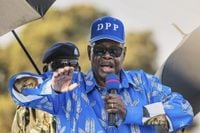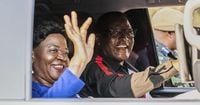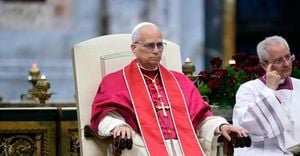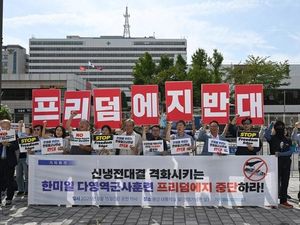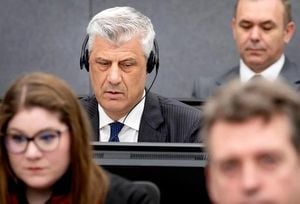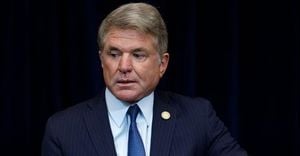Malawi, a landlocked nation in southern Africa, is at the crossroads once again as millions of its citizens head to the polls on Tuesday, September 16, 2025. This election, which will determine the country’s next president, the makeup of its National Assembly, and over 500 local government councillors, comes at a time of deep economic hardship and political scrutiny. It is the first national vote since the tumultuous 2019 presidential election was annulled due to widespread irregularities, an unprecedented event in Malawi’s history that set the stage for a high-stakes contest this year.
The stakes couldn’t be higher for the 7.2 million registered voters who will cast their ballots in three simultaneous elections: presidential, parliamentary, and local. According to France 24, the defining issue for most Malawians is the soaring cost of living. Inflation has surged from around 8% to a staggering 27% during the current president’s term, making basic necessities like the staple corn unaffordable for many. The country is also grappling with a critical shortage of fuel, mass unemployment, and a persistent lack of foreign exchange, all of which have exacerbated daily struggles for its approximately 21 million inhabitants.
The presidential race is headlined by familiar faces. Incumbent President Lazarus Chakwera, a 70-year-old former theology instructor and preacher, is seeking a second five-year term. Standing in his way is Peter Mutharika, 85, who previously served as Malawi’s president from 2014 to 2020 and was at the center of the controversial 2019 election. Also in the running is Joyce Banda, who led the country from 2012 to 2014 and is attempting a political comeback. In total, 17 candidates are vying for the presidency, each pledging to address the worsening economic crisis—a promise that resonates deeply with voters weary from years of hardship.
Malawi’s economic woes have been compounded by a series of climate shocks, including cyclones and drought, which have battered its agriculture-based economy. As reported by the Associated Press, these environmental disasters have left the nation’s food supply in jeopardy and contributed to the sharp rise in living costs. Fuel shortages are so severe that, on election day, the lines at gas stations may well surpass those at polling stations—a telling sign of the daily challenges faced by ordinary Malawians.
The memory of the 2019 election looms large over this year’s vote. That contest saw then-incumbent Peter Mutharika declared the winner, only for the courts to overturn the results amid evidence of fraud, including the use of correctional fluid to alter vote tally sheets. Months of street protests followed, ultimately leading to a court-mandated rerun in 2020—the first time in Africa that a court-ordered presidential rerun resulted in the removal of the incumbent. Lazarus Chakwera emerged victorious in that historic rerun, and now, five years later, the two rivals face off once again.
The Malawi Electoral Commission (MEC) is under intense scrutiny to deliver a free and fair election this time around. Public trust in the electoral process was badly shaken by the events of 2019, and many eyes are on the MEC to ensure transparency and credibility. The commission’s impartiality has been called into question once again after Peter Mutharika selected the former head of the MEC—who was fiercely criticized for the failed 2019 election—as his running mate. This controversial decision has fueled debate and heightened tensions in an already charged political atmosphere.
“All 17 presidential candidates have pledged to address the worsening economic hardship, which is the defining issue of this election,” France 24 reports. The promises range from stabilizing inflation and securing fuel supplies to creating jobs and increasing foreign investment. Yet, for many Malawians, such pledges are met with skepticism. Years of political turmoil and unfulfilled commitments have left a population both hopeful for change and wary of political rhetoric.
The structure of the election itself has changed since the last debacle. Malawi’s new electoral law now requires a candidate to secure more than 50% of the vote to win the presidency outright—a system known as the 50%+1 format. With 17 candidates splitting the vote, analysts widely expect that no one will achieve a majority in the first round, setting the stage for a likely runoff. If that happens, it will almost certainly pit Chakwera and Mutharika against each other once more, in what would be yet another dramatic showdown between two of Malawi’s most prominent political figures.
Joyce Banda’s presence in the race adds another layer of intrigue. As the first female president of Malawi, Banda served from 2012 to 2014, stepping in after the death of Bingu wa Mutharika, Peter’s older brother. Her attempt at a political comeback, alongside other contenders, underscores the crowded and competitive nature of this year’s field. Still, the consensus among analysts is that the real contest remains between Chakwera and Mutharika, both of whom have deep political roots and loyal followings.
For Chakwera, the election is a referendum on his handling of a country beset by economic and environmental crises. His supporters point to his efforts to reform the electoral system and bring stability after the chaos of 2019, while critics highlight the steep rise in inflation and ongoing shortages as evidence of failed leadership. Mutharika, meanwhile, is seeking redemption after the court’s damning findings in 2019. His decision to bring the former MEC head onto his ticket has raised eyebrows, with some seeing it as a bold move and others as a sign of political tone-deafness.
The outcome of this election will be announced within a week of the polls closing, as per Malawi’s electoral regulations. Until then, the nation waits with bated breath, hoping for a peaceful, transparent process that can begin to restore faith in its democracy. The queues at ballot stations may be long, but for many Malawians, the hope that their vote can bring about real change is worth the wait.
As ballots are cast and counted, Malawi stands at a pivotal moment. The decisions made in this election will shape the country’s future, determining not only who leads but how the nation addresses the urgent challenges of inflation, unemployment, and environmental vulnerability. For now, all eyes are on the polls—and on the leaders who have promised, once again, to deliver a better tomorrow.
